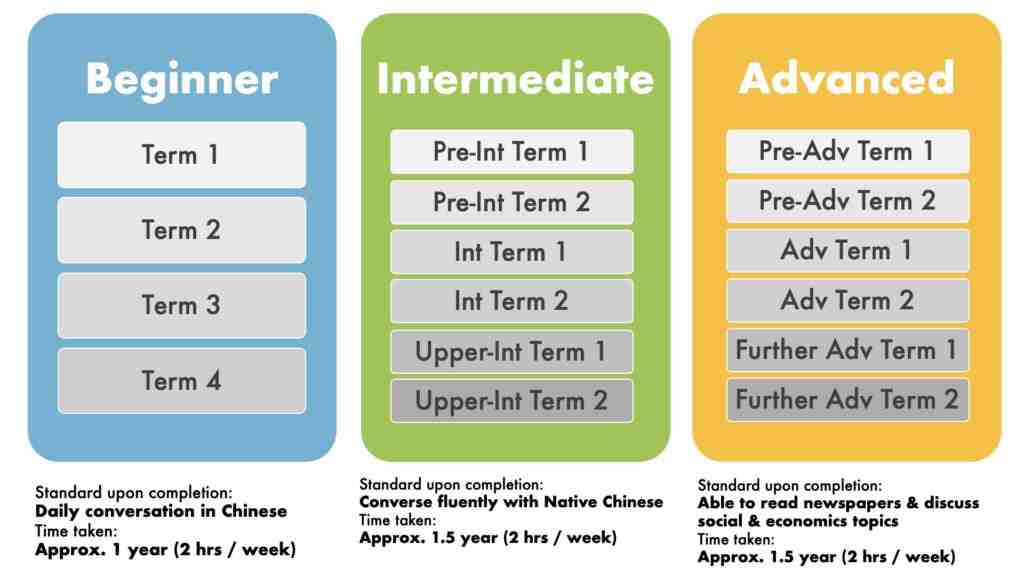Mandarin for Professionals: Differences Between Business and Casual Mandarin You Should Know
Mandarin for Professionals: Differences Between Business and Casual Mandarin You Should Know

Language has always been an important part of communication, connecting people across cultures and nations. For as long as we can remember, English has been accepted as one of the global languages, with approximately a total of 1.5 billion speakers worldwide. However, other languages recently started receiving more spotlight, one of them being Mandarin with approximately 1.2 billion speakers. This growth is not limited to casual Mandarin, but also the higher demand of usage in business context.
With the rising number of Mandarin speakers, one of the important questions to address is whether we should focus on enhancing casual Mandarin or learning business Mandarin, especially for professionals. An understanding of these differences is important to determine which type of language is suitable for achieving your goals.
To understand which type of Mandarin suits your needs better, let’s take a deeper dive into these differences!
Business Mandarin VS Everyday Mandarin: Which One Suits You Better

Business Mandarin for Professionals
As the name suggests, business Mandarin is mainly aimed for those who need to communicate in a professional setting. This type of Mandarin is usually widely used across industries, making it beneficial for working adults. Furthermore, business Mandarin usually has a few distinctive characteristics as the following:
- Word choice – As its main purpose is to communicate during business occasions, business Mandarin for professional level requires a higher level of formality. This selection of words is used to reflect respect toward the other party, giving an impression of willingness to work together and appreciation. A simple example of this differences can be seen in the use of 您 (nín) instead of 你 (nǐ) to address the other person formally.
- Grammar – Due to its main goal to communicate professionally within workspace, business Mandarin requires the communicators to apply proper grammar and complete sentences. Slangs and shortened sentences are very discouraged as it can lead to misunderstandings between parties. Ensuring a concise communication in formal occasions is of utmost importance since a slight mistake can cause a significant impact toward business decisions.
- Titles – Being a language enriched by its culture, Mandarin-speaking people believe that addressing people according to their positions in a hierarchy is one of the ways to show respect. Addressing people by their respective honorifics is believed to be an acknowledgement toward their authority in business settings.

Casual Mandarin
Casual Mandarin is the typical language used in daily conversations. Unlike business Mandarin, this type of language is usually more expressive and flexible, as the main goal is to be able to communicate in informal situations. Being the most-spoken type of Mandarin, it also has a few distinctive characteristics ast the following:
- Tone – Casual Mandarin carries a lighter tone than business Mandarin, making this type of language suitable for daily interactions, such as talking to friends and family. The main goal of this tone is to sound friendly and approachable.
- Expressions – Due to its informal settings, casual Mandarin can be far more expressive. This difference is supported by the common use of slang to sound more natural while communicating. These words are usually shifting based on the latest trends on social media.
- Mixed language – As Mandarin has grown significant in other countries outside China, each culture will usually develop its own unique way of communicating. This uniqueness is represented by mixing Mandarin with their local languages.
If you feel like learning casual Mandarin for daily conversation is the right step for you, start your learning journey with us right now.
Learning Business Mandarin for Professionals as an Investment
With how business Mandarin has been perceived as difficult due to its complexity in communicating, it is common to feel hesitant to start learning, especially if you are not familiar with the language in general. However, learning business Mandarin for professionals, at every field, can be a great investment in the future as it has a few beneficial functions such as:
- Expanding Career Opportunities – Individuals with the ability to communicate in several languages are often seen as more capable and are favorable, especially for multinational companies who have grown their businesses into other countries. As one of the most spoken languages, understanding business Mandarin can lead you to many more opportunities to work in different fields.
- Strengthening Network – For business owners, learning business Mandarin can be a great way to get connected with people across the world. Proficiency in Mandarin will provide you with a greater chance of collaborating with other countries that can help you enhance your business process.
- Improving Communications – If you’re working with people with Mandarin as their native language, learning business Mandarin is one of the most essential choices to make. Aside from expanding career options, learning business Mandarin will also help you communicate your thoughts better, clearing any misunderstandings that can appear due to language barriers.
How to Start Learning Business Mandarin
If you are working in a workplace with Mandarin speaking employees, there is a higher chance for you to seek understanding of business Mandarin. Though it can be quite challenging to start learning Mandarin on formal settings, here are a few guide on how to start your learning journey:
- Start with the basics – Although your main objective is to learn business Mandarin, it is highly recommended to start with a basic understanding of Mandarin, especially at a conversational level. If you happen to be a complete beginner, familiarise yourself with pinyin and Mandarin tones. Understanding these basics are needed to avoid misunderstandings while communicating verbally with each other.
- Actively practicing – As people have said before, experience is the best teacher when it comes to learning. If your main goal is to be able to communicate, one of the most effective ways to be able to enhance your ability is by practicing communication skills with people around you. Do not be afraid to make mistakes as you are still learning. Engaging in active conversation with your surroundings will help you gain your confidence and expand your vocabulary.
- Take a course – If you feel like learning by yourself is not enough, or if you don’t have a lot of people to help you practice, you can consider taking a business Mandarin course. A formal course will provide you with a structured learning that can be tailored to your needs. Having a dedicated professional instructor will be a great help as they have been certified to be able to assist you effectively. Consider this option if you need to learn professional business Mandarin quickly with a structured curriculum.








